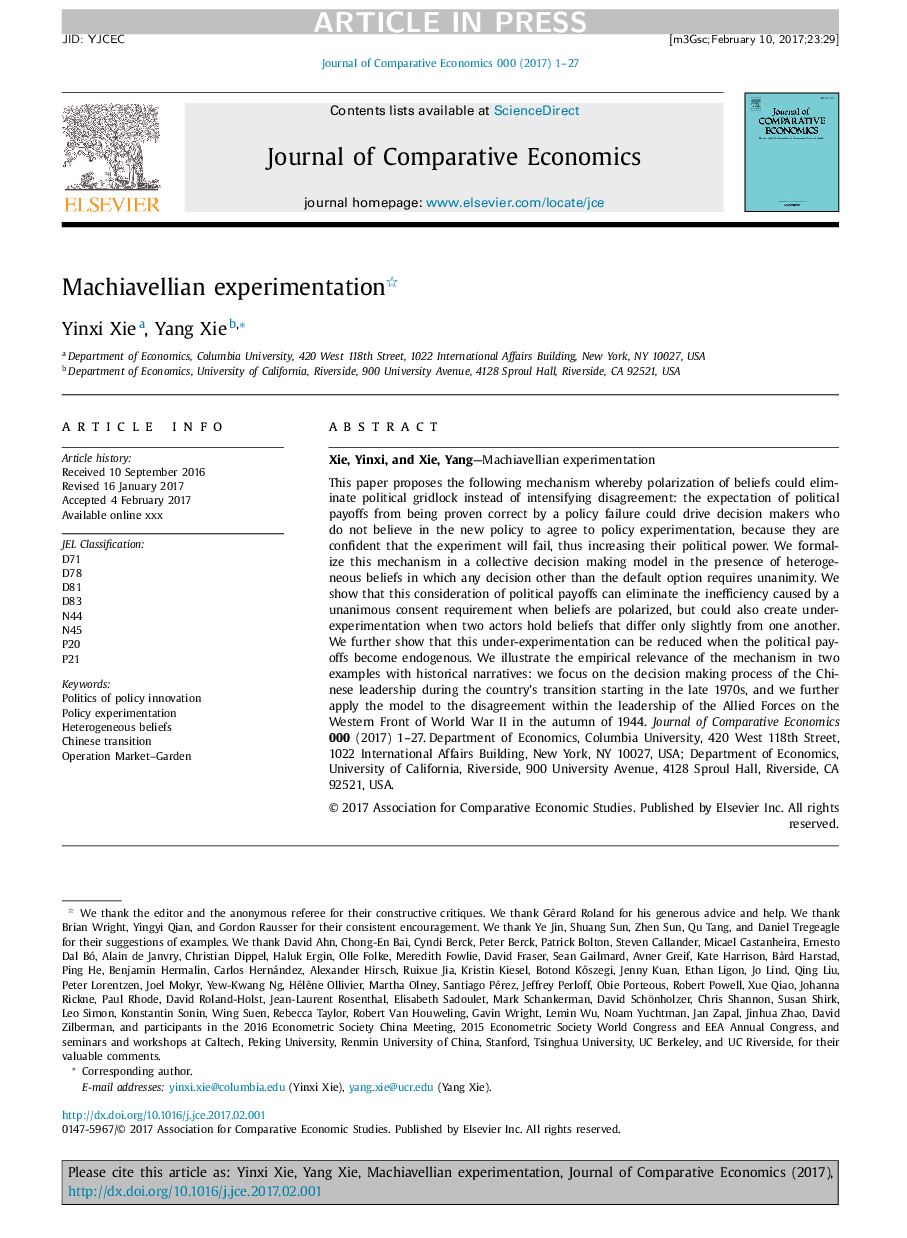| Article ID | Journal | Published Year | Pages | File Type |
|---|---|---|---|---|
| 7356930 | Journal of Comparative Economics | 2017 | 27 Pages |
Abstract
This paper proposes the following mechanism whereby polarization of beliefs could eliminate political gridlock instead of intensifying disagreement: the expectation of political payoffs from being proven correct by a policy failure could drive decision makers who do not believe in the new policy to agree to policy experimentation, because they are confident that the experiment will fail, thus increasing their political power. We formalize this mechanism in a collective decision making model in the presence of heterogeneous beliefs in which any decision other than the default option requires unanimity. We show that this consideration of political payoffs can eliminate the inefficiency caused by a unanimous consent requirement when beliefs are polarized, but could also create under-experimentation when two actors hold beliefs that differ only slightly from one another. We further show that this under-experimentation can be reduced when the political payoffs become endogenous. We illustrate the empirical relevance of the mechanism in two examples with historical narratives: we focus on the decision making process of the Chinese leadership during the country's transition starting in the late 1970s, and we further apply the model to the disagreement within the leadership of the Allied Forces on the Western Front of World War II in the autumn of 1944.
Related Topics
Social Sciences and Humanities
Economics, Econometrics and Finance
Economics and Econometrics
Authors
Yinxi Xie, Yang Xie,
